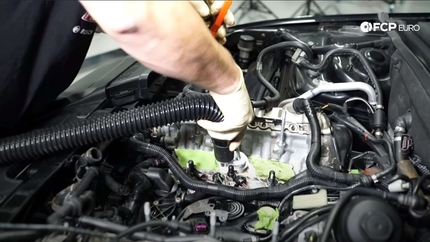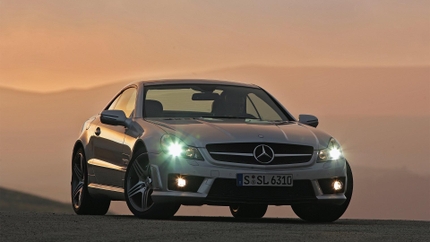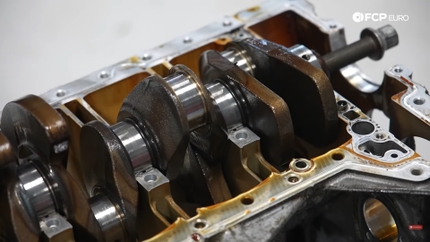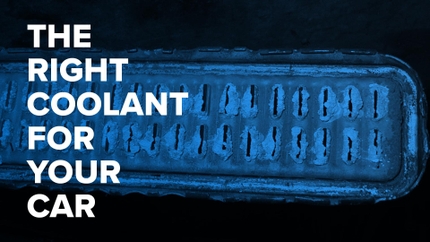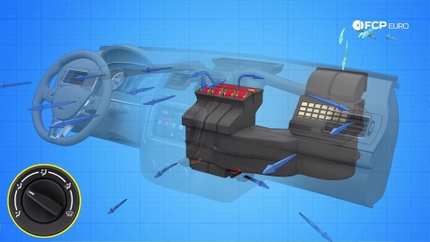- 06/11/2020
- 7 Min Read
- By: Michael Delikat
How To Choose The Right Engine Oil For Your Car
API, ACEA, ILSAC, long-life, SAE, JASO, what does this all mean? How does engine oil work, and how is it made? How should I break in a new engine? We have the answers to all of your most-asked questions.
Let's face it—there are a lot of different engine oils on the market, and it takes a lot of research to decide on oil that'll work best for your vehicle. A simple search might force you down a rabbit hole you didn't intend on going down. Usually, this starts on your favorite forum, where people argue viciously about how their oil, which is the cheapest, works better than the other guy's exotic oil which includes ingredients like space dust, finely diced lion tongue, and the most virgin of olive oil additives (not really, but you get the idea).
Shop Oil Change Kits For Your Car
Since we know that engine oil is such a massive subject with a layer of mystery cloaked by personal opinions, we brought Steffen Niemietz, the Application Engineer for LIQUI MOLY's R&D department in to answer some questions. How engine oil works, how it's made, what oils contain molybdenum, what the numbers on the oil bottles mean, what are additives, why does some oil smell so bad, and how should I break in a new engine, are just some of the questions we received from you on social media that Steffen runs through.
BMW Engine Oil |
BMW follows the long-life naming template and has the following specced motor oils:
- 5w30 - Used in cars prior to 2002
- LL-98, LL-01, LL-01FE LL-04, LL-12 FE, LL-14 FE+LL-98
- 5w30 - Used in cars from 2002-current (MXX and NXX generation of engines including Diesel WITHOUT Particulate Filters). - Backward Compatible
- LL-01
- LL-01FE
- Used in the following engines (N1X, N2X, N4X, N63, N74), the FE stands for fuel economy. This spec calls for lower SAPS, which helps protect engine internals. The lower the SAPS, the easier the fluid flows. Ideally, the oil change interval is reduced with this type of oil. Mostly used in the EU market. (Now it has entered the US market. With lower SAPS this oil loses levels of protection in favor of fuel economy and emissions)
- LL-04
- Used in all diesel applications in North America due to the higher sulfur concentrations here. In Europe, LL-04 oil is used in Gasoline applications due to an absence of ethanol in their fuels.
- LL-12
- Some gasoline engines require this oil along with the following diesel engines (Nx7K1, Nx7U1, Nx7O1) that are mostly used in the EU market. (Now this oil has also entered the US market with even lower SAPS to protect the catalyst system ... again less overall engine protection in favor of emissions and fuel economy) LL-14+ – Used in N20 and Bx8 applications from 2014 and on. Not designed for diesel use. (This oil too has come to be the new norm in the US. Unfortunately this is the case as well with lower levels of protection in favor of fuel economy. Not to omit the lower viscosity as well.)Essentially your choices are simple and we did all the research for you.
Oil choices for gasoline-powered BMWs:
If you wish to run 5W40 in your gasoline-powered BMW your choices are:
If your BMW is powered by the S54, S62, S65 or S85 engine your choices are:
If you have an older BMW that does not fit the preferences mentioned above, we also carry a 10W40 oil specially formulated for the older thoroughbreds. LIQUI MOLY 10W40 MoS2. MoS2 aids in keeping all metal parts coated with an added layer of protection and it helps in reducing friction.
Oil choices for your diesel-powered BMWs:
Mercedes-Benz Engine Oil |
Mercedes has three modern tech sheets that we will focus on for non-commercial applications of engine oils. 229.5, 229.51 and 229.52. 229.5 are for modern gasoline engines and 229.51 along with 229.52 are for modern diesel engines. They are backwards compatible with the previous tech sheet requirements.
Oil choices for gasoline-powered Mercedes-Benz:
Oil choices for gasoline and/or diesel-powered Mercedes-Benz:
Oil choices for diesel-powered Mercedes-Benz:
Volkswagen/Audi Engine Oil |
Volkswagen Audi Group (VAG) has a plethora of spec sheets when it comes to oils. The good news is that we have backwards compatible oils that for the most part negate worrying about spec approvals. Any VW 504.00 oil is backwards compatible on all gasoline applications. Any VW 507.00 oil is backwards compatible to almost all diesel applications except for R5 and V10 Tdi engines. R5 was not sold in the North American market and the V10 TDI Touareg is a very rare car and it calls for a specific VW 506.01 oil.
- VW 500.00
- VW 501.01
- VW 502.00
- VW 503.00
- VW 503.01
- VW 504.00
- VW 505.00
- VW 505.01
- VW 506.00
- VW 506.01
- VW 507.00
- VW 508.00
- VW 509.00
Oil choices for gasoline-powered VW/Audi
- 5L LIQUI MOLY 5W40 LM2332 Leichtlauf High Tech 502.00
- 1L LIQUI MOLY 5W40 LM2331 Leichtlauf High Tech 502.00
Oil choices for diesel-powered VW/Audi 2006 and newer:
Oil choices for diesel-powered VW/Audi 2005 and older:
Volvo Engine Oil |
Volvo is very simple in the US market. The oil specs for modern 2000+ model year engines call for at least an ACEA A1/B1 rating, API SL approval, and ILSAC GF-4 rating. All the approvals call for a 5W30 weight. In Europe, the weight rating is a 0W30 and a slightly different spec. The new generation of Volvo 4-cylinder engines found in the SPA platform call for a 0W20 Volvo spec oil which is very hard to come by on this side of the pond, yet we do have it in limited quantities.
Oil choices for gasoline-powered Volvos:
- 5L LIQUI MOLY 5W30 LM2249 Special Tec
- 1L LIQUI MOLY 5W30 LM2248 Special Tec
- 1L LIQUI MOLY LM20202
- 5L LIQUI MOLY LM20204
- 5L LIQUI MOLY LM20200 Special Tec - Volvo VCC RBS0-2AE
- 1L LIQUI MOLY LM20198 Special Tec - Volvo VCC RBS0-2AE
- 5L LIQUI MOLY 10W40 LM2043 MoS2
- 1L LIQUI MOLY 10W40 LM2042 MoS2
Porsche Engine Oil |
Most Porsche engines use the A40 spec oil with a 5W40 weight. C30 oils are reserved for hybrid, diesel and V6 Cayenne applications. C20 oils are for fuel economy with reduced levels of additives. Porsche specs are very straight forward and call for these approvals:
- A40
- A30
- C30
- C20
Oil choices for gasoline-powered Porsches (minus V6 Cayenne)
There are a lot of choices of oil out there, and luckily, LIQUI MOLY makes your life easy by offering something for every application.
If there is a choice to be made, we would recommend going with a fluid that carries the Original Manufacturers approval along with a set of other approvals as the different additive packages will provide better protection than just the one approval.
If you're really curious, we suggest to play around with this Oil Spec Performance Tool from Lubrizol. This tool will allow you to compare the different oil specs and see how they fall on a performance graph, how they are similar, and how they are different.
We also ask you as a consumer to be wary of the oil specs that new cars require. They are mostly designed to be emissions-compliant rather then provide the best levels of protection. If you wish to still run the newer oils, you must take into account that with lower levels of additives, they can't last as long and must be replaced early.
Hopefully this guide helps direct you to making an informed choice for your next oil change. If you have any questions or comments about the correct oil for your car, leave them in the comments section below.



